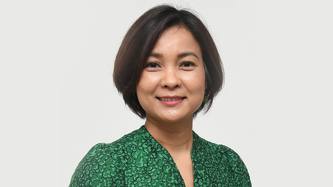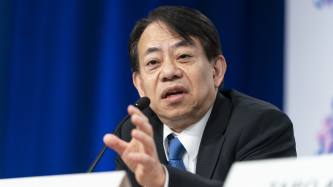ZHOU XIAOCHUAN: Governor of the central bank, The People’s Bank of China
Zhou Xiaochuan is a far less outspoken figure than America’s Alan Greenspan, but his role as governor of the People’s Bank of China, has made him almost as influential given China’s growing sway over the world economy.
Mr Zhou has been in the spotlight since July 21, when the central bank announced a 2.1% revaluation of the renminbi, to Rmb8.11 to the dollar – the first shift in the renminbi’s value since 1994. Since then, Mr Zhou has been defending the step, which included a shift away from a dollar peg of Rmb8.28 per dollar to a link with a basket of currencies of Beijing’s main trading partners. To domestic criticism that it was a concession to foreign pressure to let the renminbi’s value rise, he has argued that moving toward a more flexible exchange rate is crucial for the success of China’s economic reform program. And he still faces pressure from foreign critics who contend that the move was too little, too late.
Like many other top Chinese leaders, Mr Zhou has an engineering degree and is an alumnus of Tsinghua University, China’s equivalent to MIT. He was appointed central bank governor in December 2002 after heading the stock market watchdog, the China Securities Regulatory Commission, for two years.
Foreign bankers consider him one of the best of a new breed of Chinese bureaucrats familiar with the market economy and the global economy, fluent in English and comfortable hobnobbing with foreign peers in international meetings.
But Mr Zhou, now 57, has not been immune to controversy. During his tenure at the securities commission, his efforts to root out endemic corruption in listed companies and abuses by brokerage houses sent the market spiralling downwards, infuriating many stock investors.
Mr Zhou was a vice-governor of the central bank during the Asian financial crisis of the late 1990s, when China’s foreign exchange policies – and its decision not to yield to the temptation to devalue the renminbi for the sake of China’s exports – first took centre stage.
From 1998 to 2000, Mr Zhou was president of the China Construction Bank, the country’s biggest property lender, and he was involved in China’s first effort to set up its own investment bank, the China International Capital Corp, with Morgan Stanley.
His multifaceted career has also included stints in the trade ministry, the economic reform commission and the State Administration of Foreign Exchange.
LIU MINGKANG: Chairman of the China Banking Regulatory Commission Like Mr Zhou, Liu Mingkang is a cosmopolitan internationalist though his early career was spent not in finance but farming, during the 1966-1976 Cultural Revolution.
As the first chairman of the China Banking Regulatory Commission, the industry watchdog set up in 2003 to speed up the rescue of China’s debt-laden banks, Mr Liu has an urgent mission, to help clean up the bank’s balance sheets and make them competitive ahead of the full opening of the industry to foreign competition in late 2006. “The high ratio of bad loans has added some risks to the financial system and time is running out for us to fix the problems,” Mr Liu said at the time of his appointment.
Mr Liu hasn’t wasted any time in tackling those tasks. In late 2003, China announced it was pouring $45bn into the Bank of China and China Construction Bank to help reduce their non-performing loans and boost their capital.
Mr Liu, now 58, is known as a realist. In 2001, he astonished many by disclosing that the non-performing loan ratio for the Bank of China was almost 30% as calculated by international standards – way above the earlier released figures.
Mr Liu began his 20-year banking career at the Bank of China’s Nanjing branch, ending up as chairman and president from 2000-2003.
As banking commissioner, he has been encouraging foreign banks and other investors to take stakes in the big four state commercial banks.
Mr Liu is used to challenges. Sent to the countryside during the Cultural Revolution because of his family’s intellectual background, he studied English on his own – succeeding to the point where he is known to be fond of poetry, especially that of Byron and Shelley.
When Bank of China sent Mr Liu to study in England, he earned an MBA from the City University of London. He became China’s most prominent banker almost by default, as other executives were felled by corruption scandals.
FANG FENGLEI: CEO, Goldman Sachs Gaohua Securities Co A plainspoken one-time soldier with top-notch political connections, Mr Fang is known as one of China’s premier deal makers – someone who gets the job done when others may fail.
Mr Fang’s latest venture is a new joint venture investment bank between Goldman Sachs, computer company Lenovo Holdings Ltd, and Gaohua Securities Co. Gaohua was a brokerage he set up with a $100m loan from Goldman Sachs. This followed another deal that involved Goldman handing over $62m to refund investors in Mr Fang’s bankrupted brokerage, Hainan Securities, in exchange for the securities firm’s trading license.
Foreign entities normally would be limited to a 33% maximum stake in such a joint venture. Mr Fang is said to have engineered a deal that gives Goldman Sachs in effect about a 75% stake in the joint venture bank – handing the New York firm an advantage its rivals lack: managerial and financial oversight of a Chinese investment bank.
Mr Fang, 53, broke into the investment banking business when it was just taking off in China, at China International Capital Corp, the country’s first investment bank – a joint venture between China Construction Bank and Morgan Stanley.
Since then, he has worked on some of China’s biggest overseas IPOs, such as those for China Telecom (Hong Kong) and China Unicom, the two China mobile phone giants. Mr Fang was recruited in 1999 to head Bank of China International, the Bank of China’s investment bank in Hong Kong and revived an IPO for China National Offshore Oil Corporation, China’s third biggest oil and natural gas producer, after Citigroup failed to complete it in 1999.
Mr Fang later headed ICEA Finance Holdings, the investment bank arm of Industrial and Commercial Bank of China.
WU YI: Vice Premier, State Councillor
Wu Yi, China’s most influential woman, is a renowned troubleshooter in a political world dominated by men.
Since Ms Wu became a vice-premier in 2003 after a six-year stint as China’s trade minister, her skills as a negotiator and decision-maker have kept her in the limelight.
Ms Wu’s latest project is helping to settle a rancorous textile trade dispute with the US. Before that, the Communist leadership tapped her to head the Health Ministry following the outbreak of SARS in 2003, replacing Zhang Wenkang – who was removed as minister after a cover-up of the disease’s earliest cases allowed it to spread, killing hundreds of people.
A native of the central Chinese city of Wuhan, Ms Wu attended Beijing Petroleum College and began her career working in an oil factory out in remote Gansu province. Her engineering background appears to have served her well as she ascended the government ranks along with fellow technocrats.
Ms Wu was named vice-mayor of Beijing in 1988, vice-minister of Foreign Economics and Trade (now the Ministry of Commerce) in 1991, and trade minister from 1993-1998.
In 1998, Ms Wu became a state councillor, and in March 2003 she was rewarded for her success in helping to complete the delicate negotiations for China’s accession to the World Trade Organisation with a position as vice-premier.
Ms Wu’s demure, elegantly tailored suits belie a no-nonsense approach and sharp wit. According to official biographies, the 66-year-old is a lover of books, music and sports, including golf, tennis and fishing.
WU JINGLIAN: Chief economist, Development Research centre of the State Council, China’s cabinet
Wu Jinglian is one of the few Chinese economists who speaks his mind, even if he causes a stir. His views as a leading advocate of economic reform have helped shape government policy over the past two decades. Any time there is debate in China over the stock market or the direction of economic reforms – and that is often – Mr Wu’s name is bound to come up.
Most recently, Mr Wu advocated easing China’s currency peg against the dollar, declaring that “China already has the conditions needed. I hope we could see some concrete results within this year.” On July 21, the renminbi was revalued. Although the shift in policy undoubtedly was already in the works, Mr Wu’s endorsement was widely seen as a sign that the government was preparing to take action.
Mr Wu, 75, is best known for his pronouncement in 2001, on the CCTV state television network, that China’s stock markets are akin to “casinos” – a comment that touched off a heated debate. Mr Wu, who at the time was a private adviser to then-premier Zhu Rongji, actually said the stock markets, plagued by insider trading and market manipulation, were worse than casinos: “Foreigners say Chinese stock markets take after casinos in that they are not stringently regulated,” Mr Wu said. But he added, “Casinos actually do have regulations, such as prohibitions against looking at other players’ cards. In our gambling house [the stock market] some peek at others’ cards and… the art of manipulating stock prices has been developed to a state of perfection,” he said. His candour, though controversial, earned him wide respect.
A Nanjing native, Mr Wu graduated from Fudan University, Shanghai’s top school, and has been a visiting professor at Yale, MIT, Stanford and Oxford.











